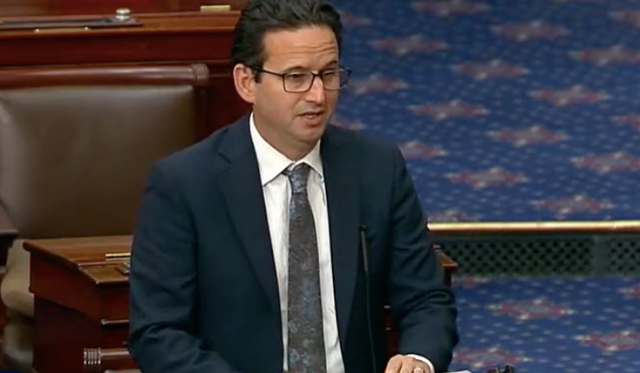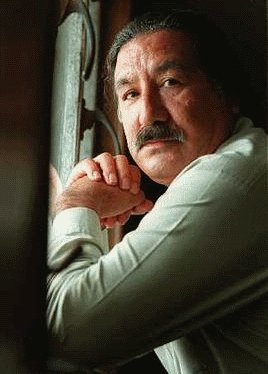
- Details
- By Neely Bardwell
Breaking News. U.S. Senator Brian Schatz (D-HI), chair of the Senate Committee on Indian Affairs, spoke on the Senate floor late today to renew his calls on President Biden to pardon Leonard Peltier, a Native American activist convicted of murder in 1977 following a controversial investigation and trial, which many civil rights leaders and legal experts have called unjust, including the U.S. Attorney who prosecuted the case.
Since 2022, Schatz has repeatedly led colleagues in calling on the president to grant Peltier clemency.

Earlier this week, December 1, President Biden pardoned his own son, Hunter Biden who faced sentencing this month for federal tax and gun convictions after stating previously he would not. This comes as Biden’s presidential term quickly comes to an end. Now, activists continue the call for Biden to do the same for Peltier.
Schatz addressed the U.S. Senate floor to argue Peltier's case for clemency, saying he deserves “grace and mercy”, and his conviction was made with little evidence.
“Peltier is now 80 years old and has been in prison for 50 years. He is in declining health, experiencing vision loss and other illnesses…And so even if you believe that he did in fact commit the crime, surely now the time is to let him spend whatever remaining days he has at home to die with his family. He's done his time. He's of old age and in poor health. This is what clemency is for. This is what mercy is for. He poses little threat to society. If there was ever a case that merited compassionate release, Leonard Peltier’s is it.”
Peltier was arrested in 1975 for his alleged involvement in the murder of two FBI agents in a shootout on the Pine Ridge Reservation in South Dakota. One witness whose statements were used at trial, said she was told to lie and say she was in a relationship with Peltier and that she had witnessed him shoot the agents. She later recanted that statement, saying, “I was forced into this, and I feel very awful. I just wish that Leonard Peltier would get out of prison”.
Schatz explained that according to reporting, a juror who on day two of the trial professed her prejudice against Native Americans, was allowed to remain on the panel and later went on to find Peltier guilty.
The US attorney who prosecuted the case, James Reynolds, wrote in a letter that Peltier had served his sentence on “the basis of minimal evidence, a result that I strongly doubt would be upheld in any court today.”
In the same letter, Reynolds said “I write today from a position rare for a former prosecutor to beseech you to commute the sentence of a man who I helped put behind bars with time and the benefit of hindsight, I've realized that the prosecution and continue to incarceration of Mr. Peltier was and is unjust. We were not able to prove that Mr. Peltier personally committed any offense on the Pine Ridge Reservation.”
Create your own user feedback surveyMore Stories Like This
Native News Weekly (August 25, 2024): D.C. BriefsScope Narrowed, Report Withheld: Questions Mount Over Michigan Boarding School Study
Zuni Youth Enrichment Project Announces Family Engagement Night and Spring Break Youth Programming
Next on Native Bidaské: Leonard Peltier Reflects on His First Year After Prison
Deb Haaland Rolls Out Affordability Agenda in Albuquerque
Help us defend tribal sovereignty.
At Native News Online, our mission is rooted in telling the stories that strengthen sovereignty and uplift Indigenous voices — not just at year’s end, but every single day.
Because of your generosity last year, we were able to keep our reporters on the ground in tribal communities, at national gatherings and in the halls of Congress — covering the issues that matter most to Indian Country: sovereignty, culture, education, health and economic opportunity.
That support sustained us through a tough year in 2025. Now, as we look to the year ahead, we need your help right now to ensure warrior journalism remains strong — reporting that defends tribal sovereignty, amplifies Native truth, and holds power accountable.
 The stakes couldn't be higher. Your support keeps Native voices heard, Native stories told and Native sovereignty defended.
The stakes couldn't be higher. Your support keeps Native voices heard, Native stories told and Native sovereignty defended.
Stand with Warrior Journalism today.
Levi Rickert (Potawatomi), Editor & Publisher

